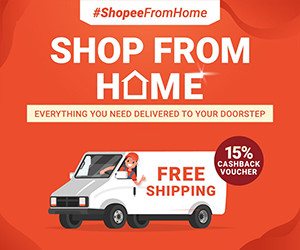STYLEGUIDE sits down for a coffee chat with Robin, co-founder of Made Real, a lifestyle service delivering a curated and personalised box of nutritious snacks to subscribers, to unearth her story of running a startup for the past four years.
A vivacious final-year business student at Singapore Management University (SMU), Robin is not one to shy away from any challenges or risk, having started Made Real with co-founder Roslyn before they were even in their twenties.
It is often said that entrepreneurs look at the world through a different lens than others, after all, which group of people would trudge along an uncertain and perhaps risky path with no promise of rewards at the end?
What was it like being a young startup founder?
When we started, we were like 18,19…we just turned 19 actually, and we had no idea of what we were going to face!
I didn’t dare to call myself a founder until recently, maybe one or two years ago.
Previously, I would just go along like “Oh, I’m doing my own thing”.
What do we know right, what do I know?
But then I guess being self-promotional sometimes helps a lot.
I think the only reason we kind of survived the first one or two years of running the startup was because we were very ignorant about it.
“We're going to do this!”
“We're going to change the world!”
And people were like “Okay, maybe, maybe”.
But imagine if we said “No, we don’t know what we're doing”.
Obviously nobody is going to trust us.
So yeah, it took a little bit of that.
Especially when we go for networking events, and everybody else is at least 15 years older than you and mostly male, it gets a bit intimidating sometimes.
I guess we were very lucky because Roslyn and I are naturally very outgoing people and we were telling ourselves, “Okay, I don’t care if you are 40 years old or if you have 20 years of VC (venture capital) experience. I'm still going to say, ‘Hey, come invest in me!’”.
We'll just be like, “Join us! You don’t need to invest or do whatever, you just need to believe in us.”
That was it.
And I guess that helped a lot.
We didn’t realise what we were doing, but then when we looked back, we realised that we were just building social capital.
Especially as a young entrepreneur, that's the biggest thing that's going to help you.
You can have a ton of money but if nobody likes you, you're not going to go anywhere.
You know, I think that was the one thing that we were very lucky at – that we didn’t really know what we were doing but we managed to do it anyway.
What challenges did you face when you started your entrepreneurial journey?
When I first started, my parents were very angry.
Throughout my entire childhood, since I was in primary school, my parents always wished for me to go overseas to study.
So I applied and got into a couple of schools overseas, and my parents were very happy, “Great, let's start planning for you to go!”.
However, in the end I started my startup right before, during that holiday period after A'levels where I was applying to university.
And when I got my acceptance letter, Made Real was already started.
Naturally they were against the idea.
I still remember the conversations I had with my parents and they couldn’t really understand where I was coming from – why I would choose this startup, back then it wasn’t even a startup, it was just like a pet project.
They thought it was because of some of my friends or because of this guy I was dating.
And it had nothing to do with those.
When I took my gap year in my second year, my parents stopped giving me allowance. So I put all my savings into my startup, and the startup was making decent, but not enough to give me a proper living.
For 6 months, I was struggling.
“I have no money, cannot do this, cannot do that.”
And it was very tough!
But it really taught me the importance of planning for my finances, it taught me a lot of lessons. Over time, my parents' perception slowly changed and I realised that they only wanted the best for me.
They could not see my belief and determination to my startup and that’s where I had to show it to them.
It took me three years, a little less than that maybe, to show them that “Hey! This is what was in my head two years ago, that's why I wanted to stay.”
And now they are beyond supportive in every imaginable way after some convincing.
And I told my mom one thing, that if I'm that good anyway, then I'll be good anywhere.
I told her that, and that was when they were at peace with my decision.
What advice do you have for a budding entrepreneur?
I think my advice for anybody that's just starting out is to build social capital and be very genuine about it.
If you're nice but a little bit of a psychopath, and people can see that you're doing this very transactional thing, nobody's going to want to be your friend.
People can see through it, you have to be very genuine.
Make friends at the start, you need more friends than enemies because there's going to be a ton of enemies out there (your competitors).
What advice would you give your younger self?
For myself, I think it would be about knowing how to handle moderate success.
In my EBC (Entrepreneurship and Business Creation) lecture, there was a guest lecture by Peter Kellogg. He went through a lot of very insightful and accurate things, a lot of things which I could relate to.
What resonated with me was when he said that “many entrepreneurs, when they set out, they aim for success and want to change the world. However, many times we don’t fail outright, but we fall into this zone of moderate success”.
Which is decent, there is some income and revenue and profit, but it’s just moderate.
For me, I know exactly what he's talking about, because I know exactly how it feels.
We did not change the world in any way.
I think that was a wake up call for me.
It’s so true, you don’t outright fail and this is what the VCs (venture capital) call the zombie stage, where you’re doing your own thing and have moderate success but you’re stagnant.
Sure, we’ve impacted some people like our customers who really care about us, or relate to our story, but it’s not anywhere close to where we wanted to be.
It is enough to keep you alive, give you a job and to feed you, but it’s not anywhere close.
That expectation is important!
So yeah, I think the expectations part of it – if I knew for myself that this whole thing is going to happen, where you might aim very high yet fall very short, and it might not be short in the sense that we just do something and it kills the startup instantly. Your startup might still be alive but then your reality and expectation of it is so different.
But if you're just a student and you have no idea what it's like to work for somebody else, or even work for yourself, hearing about this moderate success you would be like “Meh”.
But do you know what it feels like?
Do you know the disappointment?
Do you know that soul-crushing agony?
The words have so much meaning, but it's only after having gone through your experiences that you know what meaning it has.
And as we were going through this past eight, nine months or so, it was very difficult, for myself and for the team.
Once I was not motivated anymore I couldn’t motivate the team.
That was very difficult.
And it was because I was so disappointed.
I felt crushed.
Like we're in this valley and stagnant plateau.
I felt super depressed.
I was so unhappy. Every time I went for a networking session I didn’t want to talk about my startup because I'm almost ashamed.
And when you're forced to talk about something you're ashamed of, it's very difficult.
I was like, “We had such big ambitions, we sold everybody on these big ambitions and now we're still at the same place”.
But if I had expected this a little bit more, to have been mentally prepared for this, that we might just aim for the moon, but fall on the clouds – if that was it, then I might have been a little bit more resilient about it, to say “It's fine, let's just keep going”.
And this came at quite a hard time, because personally I was going through a lot of financial issues as well.
If I knew, then I might not have been so negatively affected by it, and I might have still the persistence to carry on.
So I would tell my younger self that “Hey, you might be running an SME (small medium enterprise) in the end, and if you don’t like it then you got to make a conscious decision to do something about it, to either push through or do what I'm doing now, taking a break.”
Yeah, it would have saved me 6 months of heartache. But then I feel there's a few different ways of looking at it, like how I feel about it is very different from the reality of what it is. It is still a company, it is still running on its own, I just feel a little bit like…I want to do more.
I want to do more, whether it is for the brand, or something else.
I feel that there is so much more we can do.
When did you start feeling that maybe you were being too hard on yourself?
Ironically when I started school again.
When I was relearning all these things in a formal setting and I realised that I already know it.
I went through hell for the past three years to know all these things.
So then this semester was when I realised I actually came quite far. Even if I'm not successful or anything like that, we learnt a lot of things, that's what matters the most right.
But that being said, at some point the learning has to stop and you have to show results.
It's quite funny how all these things come into play, university and everything.
Generally I'm quite happy I went back to school, it gives me a good break.
I wouldn’t say I regret my startup journey.
If I were to choose between a 0.5 GPA or my startup, I will still choose my startup.
I do wish that I've picked a more technical degree though. My degree is in strategic management, and it's easy because it's just like the theory of running a startup.
Anybody who has done a startup before would be able to breeze through it pretty much, because it's quite the same thing – business plans, financial plans, pitching, innovation and technology – very straightforward stuff.
And now I think back, maybe I should have chosen something else.
Having gone through so much, what is your outlook on the world and what would you say is your purpose in life?
I have thought about this a lot, and I think as an entrepreneur, it’s something you constantly ask yourself – “What is your purpose?”
I think it takes a lot of self-awareness, a lot of reflection, a lot of understanding yourself and your circumstances as well.
I always thought you can be as broad like:
“I want to change the world”,
“Yes, I am going to be this heroine, going to do something that’s so big”.
The reality is, what does it even mean?
It is a tough question and I feel like anybody that has a specific answer, maybe they are thinking too short-term?
Is that the dilemma?
If it’s too broad, you have no idea; if it is too narrow, it is too short-term.
So I think that’s where I am stuck at…I think your purpose in life can change definitely over time, and that helps.
I will say my duty to the world right now, my duty to the people around me, is to really find and discover that purpose.
Because if you don't discover that purpose…you are just existing, in a superficial, non-purposeful sense.
If you think about it, what do you owe to the world? If you really want to change something, it's to discover that.
You're not going to be doing anything that you are meant to – things that you can actually change and things that you actually have a talent for.
So I feel it's a combination of a lot of things and you owe it to not just yourself, but everyone around you to discover that purpose.
Maybe I want to find fulfilment in my life, you know, that’s why I need to find my purpose.
But if you think about it on the impact side, finding your purpose could create so much value for everybody.
That's why I feel like that's your duty.
It's a funny way to look at it.
I owe it to the world if I want to change the world.
If I want to say that I want to change the world, then I better jolly well find that “thing”.
You change the world by creating value for yourself, for the people around you, for customers and everything else.
So how do you create your value?
It's to really figure out that thing that you're gonna do that you're best at.
You know, I always thought of impact and value as an input/output thing.
What can I put the minimum in but get the most out of? Not just in terms of money or returns or investment, but it’s more like energy.
I only have a limited amount of energy which is my life, and what is the biggest thing I can do with my life to create the biggest radius of impact?
So that is what I call purpose - that equation in the middle.
Because at the end of the day, if your existence is where input equals output, that means you don't create more value than the value you consume in this world.
Then what is your value to this world? Nothing! You're a net zero.
So as entrepreneurs, our purpose is to kind of create the biggest net positive.
Thats what I call purpose.
That in-between equation that gives you the biggest net positive.
I did think about it a lot and this is my own definition. I wouldn’t feel that everybody should think like this.
But this is how when I want to do something, or when i want to contemplate a new business idea or make a decision about my life, I use this kind of framework – “Okay, so I’m putting in this, what is the net plus?”
How would you know whether it is a plus or minus?
Well, that's the difficult part, you don’t really know.
I think some things you can assume, like for example, right now I'm very set about the food industry.
I really want to go into food tech and do all these cool things with food – source for alternative ways that people can have access to food, or access to ingredients, or even different types of ingredients.
For example, things like algae-protein – a very cheap source of protein because it's algae, it's everywhere.
The problem is, how do you farm it at scale? But once you're able to crack that problem, then essentially now everybody has a cheap source of protein to access.
So that's creating value, that’s the positive that you're creating.
Because maybe I put in two years’ amount of work and a million people get access to cheap protein. That's kind of how I would measure the input and the output.
Purpose isn’t about fitting into a mould.
It’s very much like you yourself is that in-between equation in a sense.
If business isn’t your thing, you wouldn’t be creating much value in business anyway.
You're better off doing something you're best at, and that’s where you create the most value.
After all, who is anyone to say that something creates more value than something else?
For more fascinating stories & articles, like us on Facebook and follow us on our Instagram @styleguidesg.
















